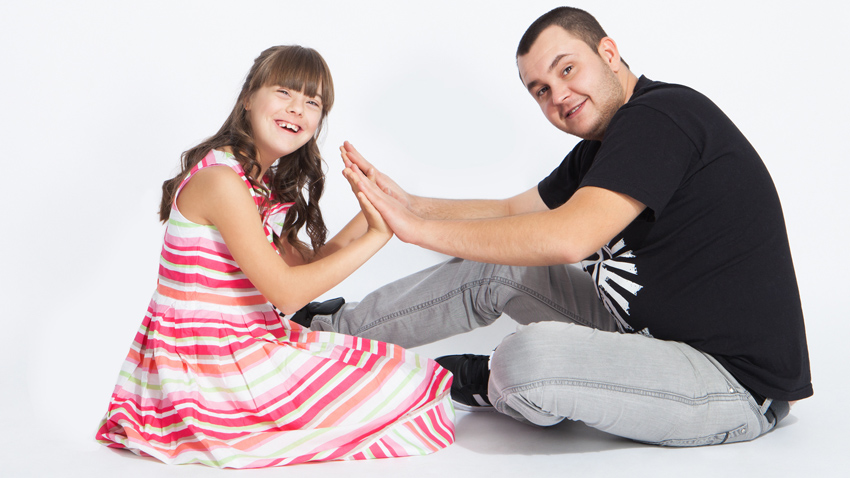 6
6
Beautiful, colourful, radiant – that is what the faces in the photo exhibition, devoted to children with Down Syndrome look like. These art photographs are up in one of the best-loved spots in Sofia – Lovers’ Bridge near the National Palace of Culture. The motto of the exhibition is “Love syndrome”. Its principal characters are children with smiles on their faces, as well as celebrities who have given their support to this noble cause. Actors, journalists and musicians devoted time and effort to the initiative to assist parents who have been doing their best to help their children adapt.
The exhibition opened on World Down Syndrome Day, which was in March but it will be in place through the Easter holidays – until April 15. It is organized by the parents of Down Syndrome children and the works depicting the “Sun children” are by Alexander Katsev, a professional photographer who has long been committed to the cause.
This is the third year running that the charity campaign is being launched to ease the pain and the feeling of helplessness of the parents of these special children, who have to fight their way through mountains of red tape every day. According to data of the parents’ association, there are around 300 families in Bulgaria raising children with this syndrome. Children with Down Syndrome are often abandoned and left at institutions. There are no trained specialists, doctors or psychologists in the country capable of counseling the family on the choices they have to make once they hear the diagnosis of their offspring.

“We want to show our children, their talents to the world, to demonstrate how much love the people living with Down Syndrome can give,” says Tony Marinova, organizer of the exhibition.
“As a parents’ association, but most of all as humans, we want to help families affected by the syndrome. This is the gravest possible genetic disorder. We would very much like to see parents accept their children as they are, with as much hope for their development as they can muster. The truth is that the syndrome is not as terrible as it once was, that modern medicine is able to alleviate the concomitant diseases in the very first months of the child’s life. There are good specialists in Bulgaria capable of assisting parents to unfold the potential of these children. And last but not least – to nurture parents’ faith, so that they will raise a good person, even though the cost is so high. This inspires them with the confidence to launch campaigns like this photo exhibition, for example. The aim is to show the real face of these children who are so different. I see that we have evidently been successful – we have been getting a positive response and compliments, people like the exhibition and say our children are beautiful. One of the things that have to change in our society is the way it looks at people who are different. We must learn to accept them the way they are. After all we are all born different and we are all entitled to our place in the world. But in Bulgaria, people with Down Syndrome cannot be seen in the streets, where they are looked upon with derision, people instinctively raise a barrier. What we want is to show the real face of this “terrible” syndrome that seems to be so difficult to understand. For five years I have been delving deep into the problems the people with this syndrome have – my own daughter is now five. And I am hopeful that in future our life will be better than it is now, that society will be more understanding.”
English version: Milena Daynova
Photos: courtesy of their author, Alexander KatsevThe third edition of the International Watercolour Biennial will be held at the Nuance Gallery in Sofia from October 2-20. The exhibition will feature the work of 14 artists from seven countries - Australia, Bulgaria, Italy, Moldova, Russia, Taiwan and..
In the first days of autumn, residents and visitors of Bulgaria's second-biggest city Plovdiv are invited to recall special, favourite and interesting spaces in the city centre. This kind of rediscovery and recognition of places tamed by personal emotion..
The main function and role of the Bulgarian Cultural Institutes abroad is to present the achievements of Bulgarian culture in all its diversity to the audience of the host country. "Our programme should be varied and everyone should find something..

+359 2 9336 661
